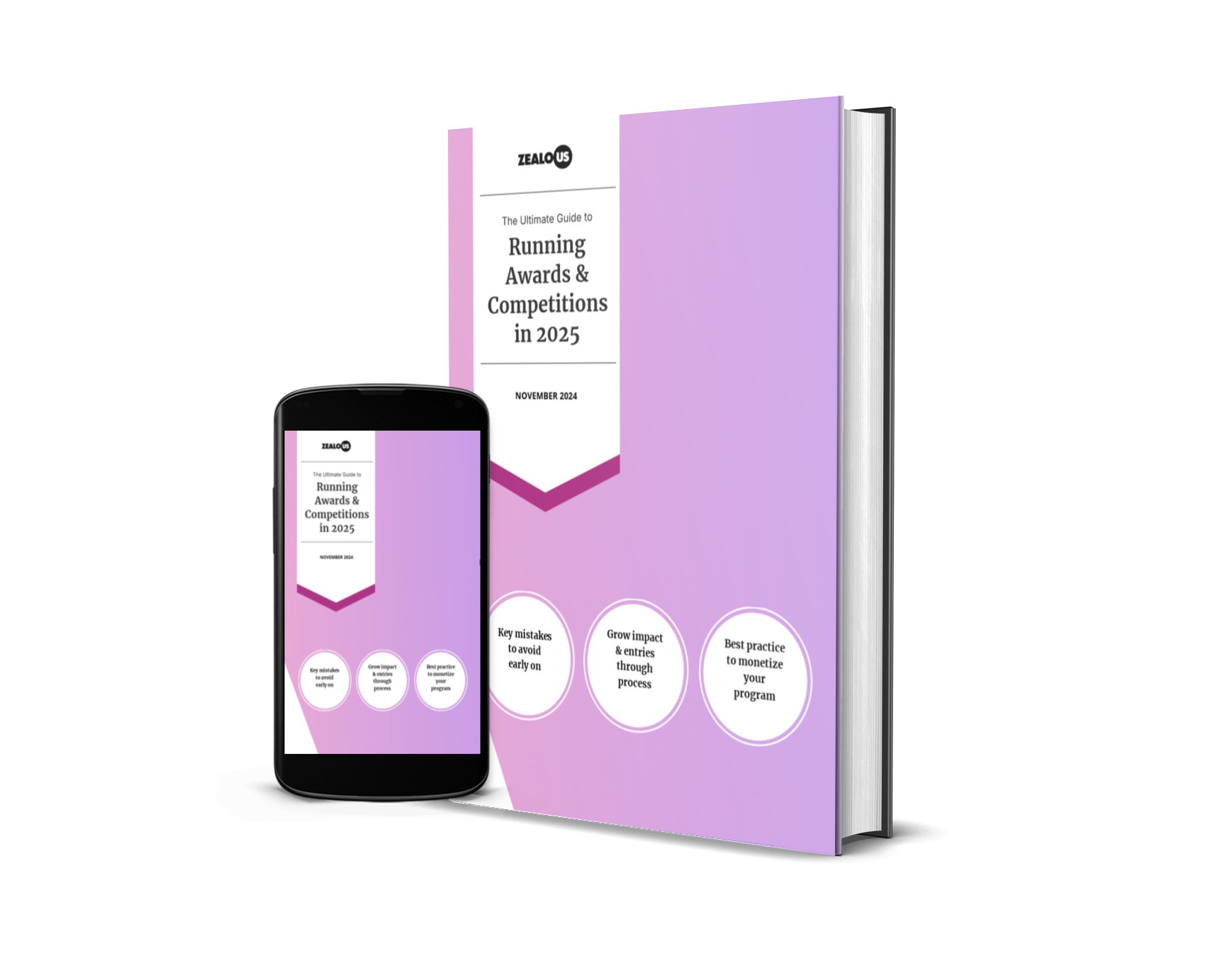This article covers:
- The historical reason for taking payments upfront
- The myths of using “submission rate” as a meaningful measure
- How web services favour taking payments last
- User behaviour when faced with paying
- Why businesses get more from making payments their final step
Why did awards take payments before filling out the submission?
Before submission management platforms became affordable, the simplest way taking entries for awards was to ensure anyone applying paid you first.
This process made perfect sense at the time, simplifying the manual admin to two steps; instead of three:
Payment first (2 manual steps)
- Get a candidate to make a payment
- Once funds are received, send the candidate a link to submit
Payment last (3 manual steps)
- Get a candidate to submit
- Send the candidate a payment link
- Once funds are received, put the candidate through to be considered.
Awards did it in this way because it was easier at the time.
Since then, some submissions management platforms have further galvanized taking payment first to mimic old processes without asking whether a better solution existed.
The false promise of measuring the “submission rate”
Many organisations will try and make a case for their process with statistics. A personal favourite of mine is the “submission rate”.
You can calculate the submission rate by checking the percentage of people who complete their submissions once they have completed the first step.
For example (in a payment-first scenario):
- If 20 people pay
- And 18 complete submissions
- The submission rate is 18/20 = 90%
This statistic claims that taking payment first will allow you to make more money. This claim is wrong; the submission rate is only part of the story.
You could have a 100% submission rate and have only ONE applicant.
Imagine 1,000 people visiting your page. The payment-first approach will present candidates with a bill before they have made any effort to submit their application. The candidates who don’t want to pay up-front will leave. Most importantly, the submission rate calculation completely ignores this early drop-off.
Compare these two examples:
Example 1
- 1,000 people visit your award
- 200 pay £250 to start applying
- 180 complete their submission
Results 1
- 90% submission rate (180/200)
- Money raised £50,000
Example 2
- 1,000 people visit your award
- 370 start applying
- 220 pay £250 for their submission
Results 2
- 60% submission rate (220/370)
- Money raised £55,000
The submission rate only tells you how many people complete their submissions once they have started them, and, yes, if people pay you, they are more likely to complete their submission.
But a higher submission rate is irrelevant in comparing if taking payments up-front is a better strategy to taking payments in the final step.
The only measure that matters is how much more income did one program have over the other. If that’s not being shared, I would be very cautious of the numbers being presented to you.
Receive weekly 2-minute tips to grow your impact
(regardless of what tools you use)
Imperfect measures
You can argue that the most accurate way of measuring taking payments up-front versus taking payments in the final step is to run two programs in parallel and count how many people visit your page and how many of those end up paying you (and most importantly, how much you raised).
But like all things, focusing solely on numbers could lead to you making incorrect decisions. You have to think carefully about the context.
You may change your process this year and compare it to last year. But since the economic situation has moved across this period, it won’t just be your changes that impact your submission numbers and income.
This year people may drop out faster because they can’t afford it. By focusing their attention on the money first, they may turn away quicker (asking people for money up-front when the economy is struggling isn’t the best strategy).
The case for taking payment last?
How often do you see online services take payments up-front? Unless you’re buying tickets for an event. Very rarely. And even when purchasing tickets, you will need to pick seats, the date for the event, and your address before any payment is requested. Payment will always be the final step.
- Buying something on Amazon, payment till the last step.
- Running an ad on Google, Twitter or Facebook, customise your ad first, then pay for it.
- Buying a Tesla, customise your car first, then pay for it.
- Etc.
These billion dollars companies haven’t “missed a trick” by taking payments last. They have invested money in testing the best flows to improve their revenues, and they have all come to the same conclusion. Requiring payment in the final step leads to an increase in revenue. If asking for payments up-front was a more efficient way of making money, they would have changed their processes by now.
The behavioral reason why taking payment last works
We can back these decisions with several behavioral reasons for asking for the payment last.
Remove Risk
If a candidate isn’t sure if they want to submit, you remove that risk by allowing them to experience your process before they pay. They won’t take that risk if you as them for money up-front.
First Impressions
Individuals rely heavily on the first piece of information they are presented with when making decisions (the Anchoring Effect). Focusing the candidates on the value of their entry is far more positive than presenting them with a bill up-front.
Time Investment
If a candidate invests time in starting to submit, it is more likely they will bounce at the payment step. If you ask them to pay upfront, candidates have no skin in the game and may leave.
Trust Issues
When individuals are used to buying services in a particular way online, asking for a payment upfront could be jarring and lead to losing their trust. (“Why are they asking me to pay now? What are they hiding?”).
The logical reason why you should take payments last
Making a payment doesn’t just demand that candidates trust your process and understand the value of what they are paying for. It also requires them to fill out many fields requiring sensitive information early on. The barrier to entry is high.
Making the start of your process lighter is more likely to guarantee you will capture the details for candidates interested in applying early instead of losing them without ever knowing who they are.
Having their details allows you to contact them to offer candidates support in applying, reminding them to complete their submission, and, should you feel they are struggling financially, offering them a discount. Capturing some of their details is far better than losing them on the first step of the process.
Conclusion
If you want to gloat about high submission rates, asking for payments up-front is the way to go.
However, if you actually want to grow your revenue, then be sure to consider all the arguments above and remember that taking payments last will make candidates feel invested in the process and will likely lead to more submissions. It also allows you to contact those tempted to drop out before paying with special deals (when taking a submission fee upfront would have just made them vanish into the ether).
Tired of managing awards with spreadsheets & clunky tools?
Discover how our sleek awards management platform streamlines every aspect of your program from first submission to final celebration .
Let us know you want us to write more content like this with a love!
Share

Guy Armitage is the founder of Zealous and author of “Everyone is Creative“. He is on a mission to amplify the world’s creative potential.










